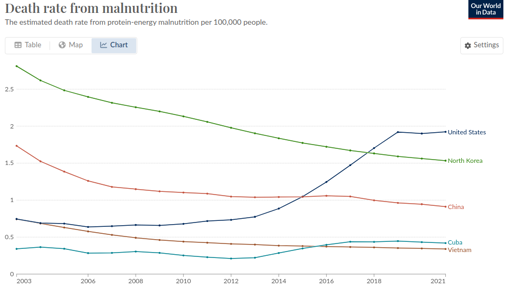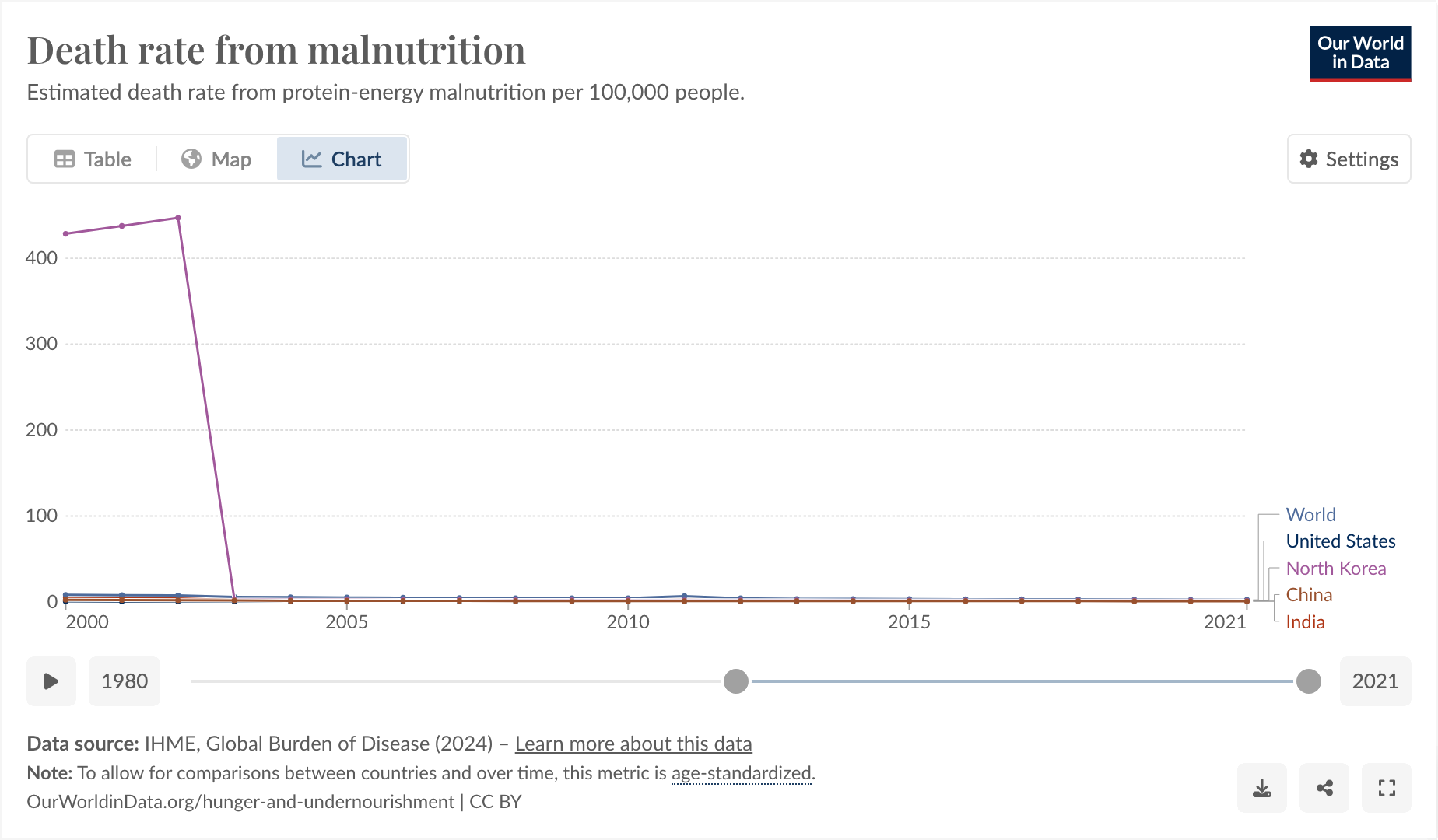This is a weird one. Bear with me. From !dataisbeautiful@lemmygrad.ml:

So I said to myself, “that’s a little bit weird. The US one going up, I can actually believe, but the North Korea one being lower is definitely wrong.”
I think Our World In Data is just being shoddy, as they often do.
https://www.wfp.org/countries/democratic-peoples-republic-korea
The thing I found funny, and why I’m posting here, comes from observing why it was that they started their graph at 2003 and exactly at 2003.

I feel like you could use this as a slide in a little seminar in “how to curate your data until it matches your conclusion, instead of the other way around.”
And also, I don’t think the hunger rate suddenly dropped from epic to 0 exactly in 2003, I think more likely Our World in Data is just a little bit shoddy about their data.


It’s still pretty misleading. Yes, most rural Chinese have toilets and electricity now, but they still struggle to access Healthcare and education. About half of rural Chinese do not finish a high school equivalent degree, because they cannot afford the basics like books and pencils. And because they have residency status which prevents them from attending any college. Likewise, for these people to access real Healthcare beyond traditional woo, they need to find transportation into the city and pay bribes for single appointments with no guarantee of continued care. It’s still a very tough life and looks nothing like what the west considers “poor country folk.”
Hm, do you have a source where I can read more about this?
Just about health care, I just looked around, and I found some outdated sources, and this: https://equityhealthj.biomedcentral.com/articles/10.1186/s12939-023-01908-4
This is what I was talking about. It looks like in 2009, the CCP indentified that there was a problem in rural access to health care, took a big swing at fixing it, and it worked. My sort of stereotype of it is that for all their heinous treatment of anything that “threatens” them, they really do sometimes make sweeping policies which are just aimed at making things better for the average person, which the US as a general rule does not.
But I’m completely open to reading up about it. Maybe I am wrong in my picture.
This is based on personal experience seeing the lines of people outside the hospitals in Shanghai at 6am trying to get on the schedule for specialty care which only exists in the cities, and talking to my in-laws about it. I have personally never actually tried to obtain medical care with a rural hukou. It’s possible that my view of this is incomplete, but I know for sure that people do travel long distances and pay bribes for specific kinds of care, since they are technically not allowed to use hospitals outside their residency.
Got it. Makes sense. IDK if “they’re sincerely working on it” is even accurate, but if so, that isn’t necessarily incompatible with “and it’s sometimes still really bad.”